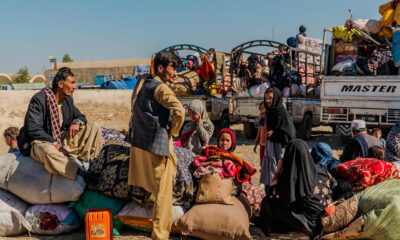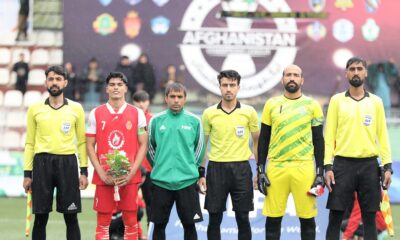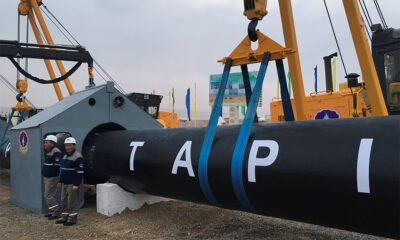Latest News
Washington struggling to isolate the Islamic Emirate
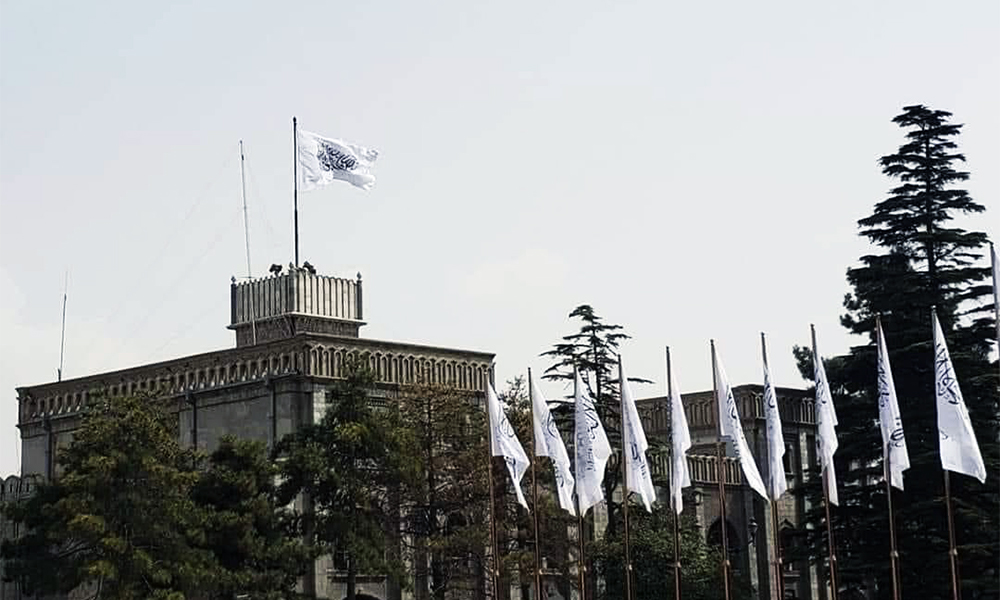
A growing number of governments, including China, are going against Washington’s approach and are not treating the Islamic Emirate as a pariah regime.
According to an article published in Foreign Affairs, the United States and its allies’ approach has been to isolate the Islamic Emirate of Afghanistan (IEA), by withholding diplomatic recognition and the benefits that usually come with normal diplomatic relations.
The approach that the United States and its allies and partners ultimately converged on was a commitment to continue engaging with the Afghan people—for example by providing substantial humanitarian aid—while withholding diplomatic recognition of the IEA and the benefits that usually come with normal diplomatic relations.
In fact, over the past two years, the United States has sought to build on this approach—not only by withholding its own recognition of the IEA but also by sustaining an international consensus on nonrecognition.
However, in the wake of concerted diplomatic efforts by the IEA to court neighboring countries and others in the region, several nations have been willing to accommodate the Islamic Emirate.
As Foreign Affairs reported, these states are among foreign governments that have embassies in Kabul and that host Afghan embassies overseas.
In January, several of these powers, including China, Iran, and Russia, even took part in a multilateral conference of their own hosted by the IEA.
Meanwhile, the IEA appears to be unmoved by global shaming, in particular when it comes to what they deem domestic affairs, such as the question of girls’ access to higher education and women’s right to work, Foreign Affairs reported.
Instead, Afghanistan’s leaders have portrayed international pressure as a violation of the country’s sovereignty, framing calls by Western leaders to uphold international norms as the latest episode in a long history of interference and intervention.
As the IEA has become more established in power, they have doubled down on a posture of resistance. As a result, rather than moderate their policies, they have pressed forward with further restrictions on women and social norms, Foreign Affairs reported.
The article stated that the erosion of the consensus on diplomatic isolation of the IEA raises important questions for Washington and its partners.
Nonrecognition is no longer a credible coercive tool, and if the United States seeks to influence the Islamic Emirate’s behavior, it must find other ways to achieve its desired aims.
Moreover, the Afghan case echoes similar situations Washington has faced with other difficult regimes, including its failure to prevent Arab countries from normalizing ties with Syrian leader Bashar al-Assad, despite crimes committed during the Syrian civil war, or to enforce a global consensus on the isolation of Russian President Vladimir Putin following Russia’s invasion of Ukraine.
Today, attempts by the United States to impose pariah status on regimes it doesn’t like are running up against serious limits.
However, analysts disagree on why Russia and China have not taken the final step of recognizing the IEA. One possibility is that both powers still seek more assurances from Kabul, especially concerning potential terrorist threats from (Daesh) Islamic State Khorasan and a number of other groups.
And as long as the United States actively promotes a nonrecognition strategy, Moscow and Beijing can reap many of the benefits of recognizing the IEA without having to formally buck the international consensus, Foreign Affairs reported.
“Thus, they can reassure the Taliban (IEA) they are on their side (for example by backing them in last December’s UN Security Council proceedings, defending Taliban positions on the recommendations of a recent UN assessment) while also withholding full recognition,” the article read.
Overall, the IEA is not being treated as a pariah regime – despite concerted US efforts to maintain an international consensus on nonrecognition. On the contrary, the region, led by China, is gradually normalizing with Kabul—and intends to continue doing so.
The IEA, for their part, are being validated by this expanding engagement. Their sense of confidence and a loss of patience with conditions-based, Western-backed engagement was evident in their refusal to attend the UN meeting of Afghan envoys in February.
The IEA was not invited to last year’s summit, so they rejected the new meeting as “ineffective and counterproductive.” Likely emboldened by Beijing treating them as a normal regime, the IEA responded to the UN’s invitation by insisting they be treated as the legitimate government of Afghanistan.
Foreign Affairs reported that with new sources of support, the IEA has less reason to submit to Western demands on human rights or inclusiveness in their government.
The failure of Washington’s existing IEA approach highlights the growing challenges to US diplomatic power around the world, Foreign Affairs stated.
Amid two major wars and intensifying strategic competition with China, the United States faces new difficulties in forging a collective international response to pressing global crises.
Meanwhile, China and regional actors are charting their own diplomatic paths, and regimes that the United States seeks to pressure can often find enough friends to defy Washington and maneuver for diplomatic gain, Foreign Affairs reported.
Latest News
Red Cross official seeks ‘staggered’ return of Afghan refugees from Pakistan
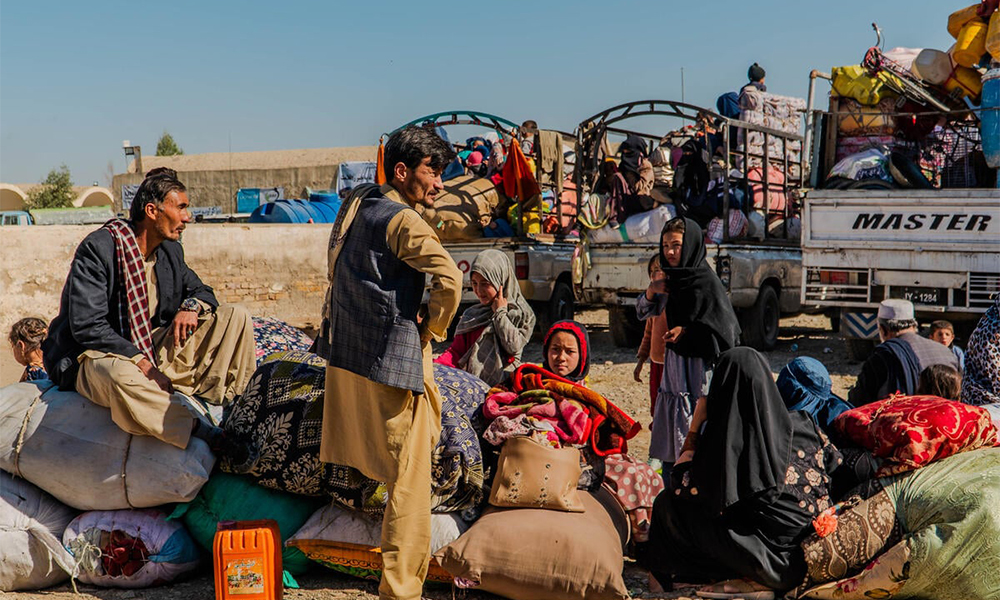
A senior Red Cross official has called for the return of Afghan refugees from Pakistan to occur “in a more staggered way” so Afghanistan can better absorb them.
“It will be important to work with the government of Pakistan in 2024 to ask that if there are going to be returnees,” that they arrive “in smaller numbers at a time just so it is more manageable on the Afghan side,” said Alexander Matheou, regional director, Asia Pacific Region for the International Federation of the Red Cross, Voice of America (VOA) reported on Saturday.
Speaking in the Qatari capital, Doha, Matheou told journalists on Friday the challenges facing Afghan returnees from Pakistan was one of several pressing issues he discussed with the officials of the Islamic Emirate in Kabul.
“You will be aware that over half a million have crossed the border over recent months, and it is likely that we will see large numbers of new arrivals in the coming months,” he said.
“I imagine this is probably the largest population flow in a short period of time in Asia since the population movement from Myanmar into Bangladesh in 2017,” he added. “So, it is a significant event.”
Since October, Pakistan has expelled more than 500,000 Afghan refugees who lacked proper documentation.
Matheou noted many of the returnees have lived in Pakistan for decades and are ill-equipped to begin a new life in a country that to them is unknown, without government or international support.
He described the returnees as being in generally poor health, especially the children, who account for nearly half of all returnees.
“The evidence of that was we visited clinics where they reported a real spike in cases of acute malnutrition coming from the arrivals from Pakistan.
“We visited routine immunization programs of the IFRC and the Afghan Red Crescent in the villages, and there it was clear looking at the children that as well as being anemic, you could see wasting and stunting among the children,” he said.
Latest News
Turkmenistan committed to complete TAPI energy project
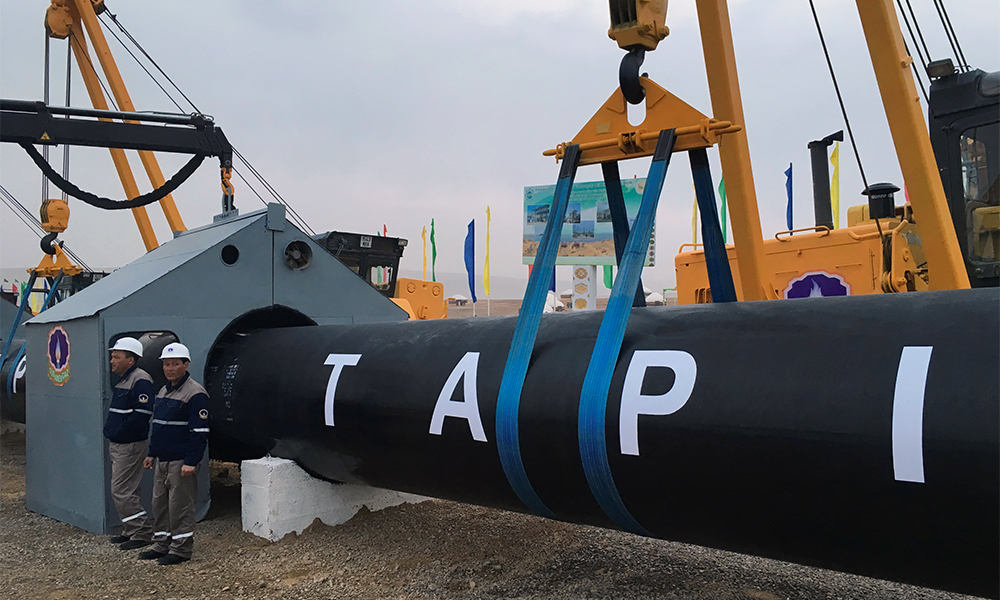
Turkmenistan is committed to complete the Turkmenistan–Afghanistan– Pakistan–India (TAPI) energy project together with the regional countries, Muhammetmyrat Amanov, CEO of TAPI Pipeline Company Limited, said.
“Turkmenistan is making significant progress on the TAPI natural gas pipeline, which aims to supply 33 billion cubic meters annually to South Asia” Amanov said speaking at the Turkmen Energy Investment Forum (TEIF 2024) in Paris.
He highlighted that the Turkmenistan section of the pipeline is complete and the ongoing discussions to advance the project beyond Turkmenistan are in strict alignment with international standards.
Amanov said the project emphasizes environmental sustainability by leveraging natural gas to reduce emissions significantly compared to coal and oil, thereby tackling indoor pollution and enhancing regional air quality.
“In light of the ongoing project developments, Turkmenistan remains committed to upholding international law, fulfilling its obligations, and adhering to international norms and regulations,” he stressed.
Latest News
Three road construction projects launched in Kabul
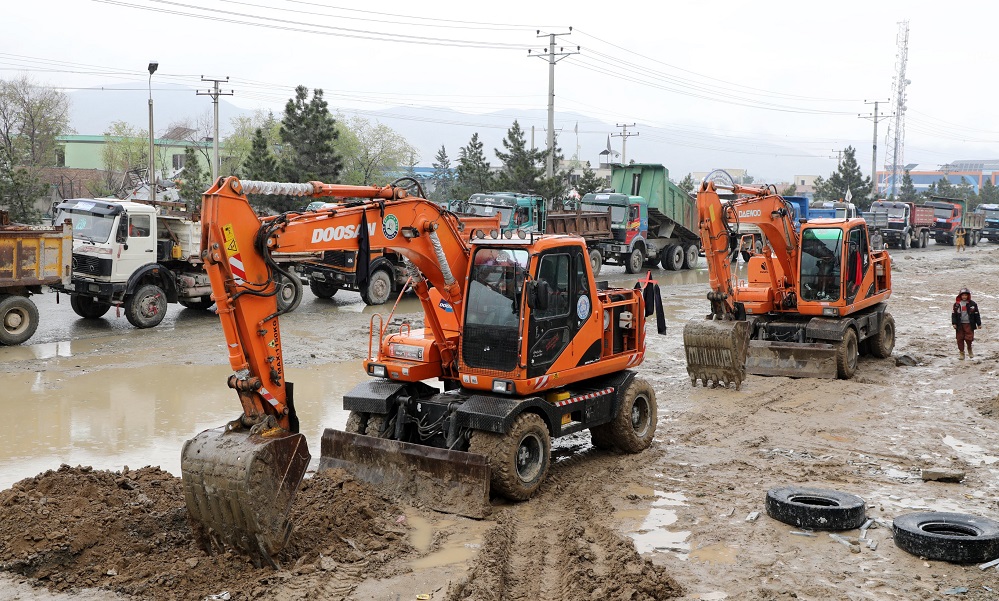
Three road construction projects worth about one billion Afghanis started in capital Kabul on Saturday.
The projects were inaugurated by Deputy Prime Minister for Economic Affairs Mullah Abdul Ghani Baradar.
The projects are: the second phase of Kotal Khairkhane road, the first part of the Shahid square to Qasaba, and the Airport road to Gumruk.
In the inauguration ceremony, Mullah Baradar said that Kabul municipality is working hard to beautify and regulate the city, and people should cooperate with the government in protecting public benefit projects.
He directed the officials of Kabul municipality to complete the mentioned projects on time and with good quality.
The second phase of Kotel Khairkhaneh road is 2.5 kilometers long and 60 meters wide. Thie road will cost 364 million Afghanis and will be completed in 20 months.
The Shahid square-Qasaba road is 1.8 kilometers long and 45 meters wide, which will be built at a cost of 175 million Afghanis in one year.
The Airport-Gumruk road is 2.7 km long and 60 meters wide, which will be completed at a cost of 407 million Afghanis in 20 months.
The projects are funded by Kabul Municipality.
-

 World4 days ago
World4 days agoNorth Korea officials visit Iran in a rare public trip
-

 Sport4 days ago
Sport4 days ago‘Serious talent’ Fraser-McGurk bonds with Warner to light up IPL
-

 Latest News4 days ago
Latest News4 days agoOver 1,000 Afghan refugees forced out of Pakistan in one day
-

 Sport2 days ago
Sport2 days agoAfghanistan beat Iraq 5-3, inch closer to Futsal World Cup berth
-

 Regional2 days ago
Regional2 days agoNew UK sanctions target Iranian drone industry
-

 Regional3 days ago
Regional3 days agoTurkey accuses U.S. of double standards over Gaza in rights report
-

 Latest News2 days ago
Latest News2 days agoEU allocates 17 million euros to support Afghans on the move
-

 Latest News1 day ago
Latest News1 day agoPakistan extends registered Afghan refugees’ stay till June 30


